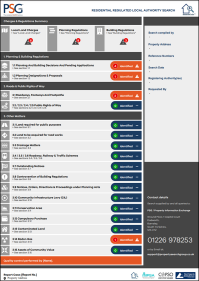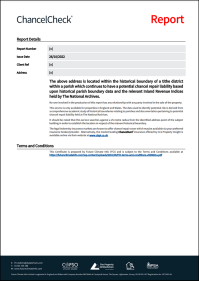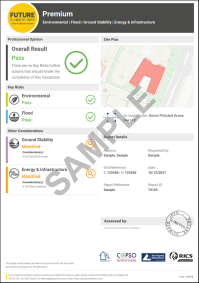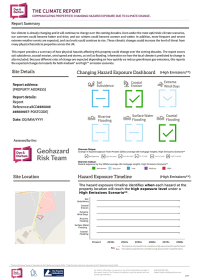Key Takeaways
- When you buy a house through the Shared Ownership scheme, you get to own a percentage of it. You can always choose to buy more shares, which you can pay for, either in cash or with a mortgage.
- You will need a valuation, and then you will have to go through the mortgage application process again, but as a homeowner, this time it might be easier.
- Depending on what you chose to do when you bought your first share, you might have to pay stamp duty when you purchase your next one.
When you decide to
staircase your shared ownership home, you'll need to pay for your increased ownership percentage by using either a staircasing mortgage - the subject of this article - or by cash from savings, gifts or perhaps another source, such as the proceeds of a
probate sale.
This article examines:
1 Should you pay for your staircasing with cash or a staircasing mortgage?
If you are in the
happy position of being able to pay for your staircasing with your own savings or from a
gift or
probate (so funds come from a deceased person's estate willed to you), you should do so.
This is mainly because you won't have to pay interest. Additionally, shared ownership staircasing using a mortgage takes longer because of the normal
mortgage application process and then, assuming success, correctly passing the funds through to the housing association.
If you are paying cash, you should note, however, that your solicitor will ask for a
proof of source of funds. Generally, if your funds come via a non-EEA (European Economic Area - which is the European Union + Iceland, Norway and Liechtenstein) bank or source, there's a high chance that your solicitor will not accept them.
Additionally you should note that in a lender's eye, there is a clear
difference between a gift and a loan. If you are intending to pay for your shared ownership staircasing via a loan (i.e. money which is due to be paid back), you will need to inform your present mortgage lender and get their permission, because they might deduce that you are putting a second charge on the property, thus affecting their own security in the event of defaults and repossession.
In the majority of cases, however, people staircase using a mortgage (normally a remortgage).
2 How does staircasing mortgage work?
You will already have made your initial application to the housing association to staircase after clearing any debt and paying over any application fees. You'll always need to get a RICS staircasing valuation as part of the process and when this has been returned, you'll have a concrete professional representation of how much money you will want to get from your lender.
You'll normally have to instruct a solicitor to carry out your staircasing conveyancing, at latest when you have your valuation returned, because you'll need to pass these details to your housing association. Additionally, when you get your mortgage or remortgage, the lender will require your solicitor to act for it as part of its own process.
You might choose to wait until you've had your
memorandum of staircasing returned - this is the document where the housing association sets down the extra percentage you're intending to buy and what it will cost you - however, you should always bear in mind that any mortgage or remortgage process is likely to take 4 or 5 weeks.
Fixed Fee | Rated Excellent on Trustpilot
Above all, you need to ensure that your whole staircasing process post-RICS valuation doesn't exceed 3 months because you'll then have to pay for either a retype of your valuation - if your housing association accepts this - or a completely new valuation.
As mentioned above, all mortgage processes involve a few stages; including initial application, decision in principle, mortgage in principle and finally the mortgage offer, ready for final completion.
3 How should you select a staircasing mortgage?
You can approach your current lender for a remortgage or you can approach another lender for a completely new mortgage product, in which case the new lender clears your current mortgage in entirety and you then make your repayments for the whole mortgage amount to the new lender. We explain this further in our article -
Remortgage Process.
We would always recommend that you have a consultation with an independent mortgage broker. They aren't tied to any particular lender's products and can find the right mortgage for your individual needs from thousands products. They'll only recommend mortgages which you're likely to be accepted for and whatever and however you pay for their advice, it normally pays for itself after a few (reduced) monthly mortgage repayments.
4 Is it harder to get a shared ownership mortgage?
Staircasing mortgages - which are normally remortgages - require the same eligibility and affordability checks which you had to go through to get your mortgage in principle for your main mortgage.
Most of the time, the additional mortgage sum will be less than or at most equal to the sum you borrowed to buy your first premium (allowing for inflation,) however, in theory you could get one for staircasing by an amount larger than your initial premium.
As someone who already owns a property, assuming you've kept up-to-date with all the required payments and continue to be in employment (or have regular remuneration), you're normally in a stronger position for getting your loan than you were before you bought your first premium.
That said, you should note that different mortgage lenders have different mortgage requirements for the solicitor to adhere to.
Some lenders won't ask the solicitor to do anything more than their obligations under the
Council of Mortgage Lenders' (CML) guidance, but some mortgage lenders request additional information to be provided to them before they will agree for the mortgage to be issued. For example, Paragon Mortgages require the solicitor to provide copies of
planning permission,
building regulations and
rights of way, however Santander Plc doesn't require this.
If there is an existing charge registered on the property, then the solicitor requests the mortgage lender to provide a current mortgage statement in order to discharge the balance on completion.
If you are adding someone to the title while staircasing, this will also incur additional costs because this will involve a
transfer of equity. You will also need to get consent from your housing association to do this.
Official Local Authority Search or Personal Regulated Local Authority Search or Indemnity Insurance?
Your lender normally requires you to pay for a Local Authority Search as part of its checks,
This affects you both in the cost and in the time it takes to obtain the desired information. For local authority search indemnity insurance, the policy is usually issued within minutes and normally costs between £25 and c.£200 depending on the value of your property.
Official local authority searches, obtained directly from the council, vary in price, ranging from around £60 to around £300, whereas personal regulated local authority searches normally cost around £200.
There are also some mortgage lenders who require you to provide environmental searches, chancel indemnity and water and drainage searches.
You can check what searches each lender requires -
here.
- This search provides essential details about your property, including planning consents and road adoption agreements.
- It can also include any notices or restrictions (e.g., conservation area, smoke control area, tree preservation orders).
- It focuses specifically on the boundaries and the title of the land or property you're buying.
- Many properties in England and Wales, both old and new, may be subject to a chancel repair liability.
- This means you could be required to contribute to the repair costs of a local church, even if this isn't mentioned in your property deeds.
- This liability stems from historical land ownership and can affect properties in both urban and rural areas, stretching many miles.
- The potential cost can be substantial, running into thousands of pounds.
- This search confirms your property's connection to mains water and identifies the location of drains and sewers, both on and near the property (public).
- It indicates whether foul water and surface water drain from the property to a public sewer and the basis of charging for sewerage and water supply.
- This report checks for past and present industrial land use, which can indicate contamination.
- If the land is officially registered at your local authority as 'contaminated', you could be liable for clean-up costs, even if you weren't responsible.
- Clean-up costs often exceed the value of the property and/or land.
- Most environment reports also contain information about nearby industrial processes or installations such as landfill sites or waste management sites, as well as pollution incidents.
- Prediction of climate risks to the property and the surrounding area up to the 2080's.
- It looks at future soil subsidence, coastal erosion, extreme wind days, riverine flooding, surface water flooding, and coastal flooding.
- While not mandatory for mortgage lenders, we expect this to become mandatory in the coming years so include it in our search bundle.
5 Do you pay stamp duty on staircasing?
You might do. The main parameters are:
- You won't have to pay any further stamp duty, if you opted for a Market Value Election when you bought your first premium (this is when you choose to pay the stamp duty based on 100% of the value of the property).
- If you only paid stamp duty on your first premium (if there was any to pay) then you'll have to pay further stamp duty if your total percentage holding exceeds 80% after staircasing.
6 What happens after you've received your staircasing mortgage offer?
You're then onto the very final stage of your staircasing process, which is the final conveyancing and registration procedure.
Are you looking for a mortgage so you can staircase?
Take advantage of a free consultation with our expert independent mortgage brokers who specialise in staircasing mortgages.
They'll help you select the right mortgage for your needs from tens of 1,000s of products on the market and will help you streamline your application.
* Fixed Fee – No Sale No Fee – On all Mortgage Lender Panels














